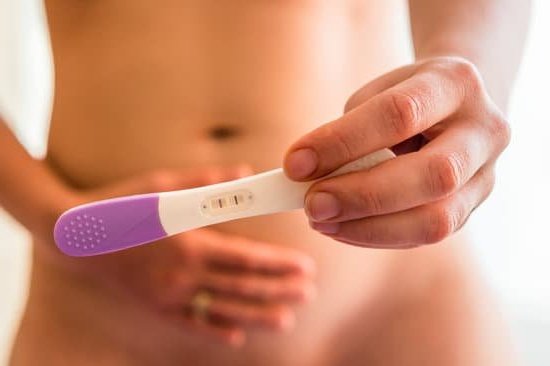As the trend of veganism continues to grow, many individuals are exploring the benefits of a plant-based diet not only for overall health but also for specific life stages such as pregnancy. The importance of vegan nutrition to achieve pregnancy cannot be overstated, as it plays a critical role in supporting reproductive health and fertility.
Understanding the essential nutrients needed for pregnancy and how to obtain them through a vegan diet is key for those pursuing this lifestyle while trying to conceive.
With the increasing availability of plant-based alternatives, it’s now more manageable for individuals following a vegan lifestyle to ensure they are receiving all the necessary nutrients for a healthy pregnancy. This article will delve into the specific nutrients that are crucial for vegan women looking to conceive and provide valuable insights on how to plan a well-balanced vegan diet specifically tailored for pregnancy.
Whether you’re already following a vegan diet or considering transitioning to one while embarking on your pregnancy journey, understanding how nutrition impacts fertility and conception is vital.
This comprehensive guide aims to shed light on the impact of a vegan diet on fertility and offer practical advice on navigating through planning a vegan pregnancy diet. By focusing on key nutrients, superfoods, meal ideas, and supplements specifically tailored for vegan women seeking to get pregnant, this resource seeks to empower individuals with valuable knowledge that supports their reproductive health and ultimately aids in achieving their goal of conception.
Understanding Vegan Nutrition
When it comes to achieving pregnancy, nutrition plays a crucial role in preparing the body for the incredible journey of creating life. For those following a vegan lifestyle, it’s essential to understand how to obtain the necessary nutrients for pregnancy through plant-based sources. Vegan nutrition to achieve pregnancy is entirely possible with careful planning and attention to key nutrients.
Essential Nutrients for Pregnancy
Key nutrients for a healthy pregnancy include folate, iron, calcium, vitamin D, omega-3 fatty acids, and protein. Folate is important for preventing birth defects, while iron supports the increased blood supply needed during pregnancy. Calcium is essential for bone and teeth development in the baby, while vitamin D aids in calcium absorption. Omega-3 fatty acids are crucial for brain development, and protein is vital for overall growth and development.
Obtaining Essential Nutrients Through a Vegan Diet
One of the main concerns often raised about vegan nutrition is obtaining enough protein and certain vitamins and minerals that are commonly found in animal products. However, plant-based sources can provide all the necessary nutrients for a healthy vegan pregnancy. Foods such as lentils, beans, tofu, tempeh, quinoa, nuts, seeds, leafy greens, fortified plant-based milk and cereals can offer ample amounts of protein, folate, iron, calcium, and other essential nutrients needed during pregnancy.
Consulting With a Registered Dietitian
For individuals who are considering or already practicing veganism and are looking to achieve pregnancy or are currently pregnant should consider consulting with a registered dietitian specializing in vegan nutrition or prenatal care. A professional dietitian can provide personalized guidance on meal planning, supplementation if necessary and ensure that all nutritional needs are being met through a well-planned vegan diet.
By working with an expert in this field, individuals can have peace of mind knowing they are supporting their reproductive health with proper nutrition while adhering to a vegan lifestyle.
Fertility and Veganism
Effect of Vegan Diet on Fertility
Several studies have shown that a well-planned vegan diet can have positive effects on fertility. Consuming a variety of plant-based foods rich in essential nutrients such as vitamins, minerals, and antioxidants can promote reproductive health and increase the likelihood of conception. However, it is crucial for individuals following a vegan diet to pay close attention to their nutrient intake to ensure they are meeting their specific needs for fertility.
Supporting Conception With Vegan Nutrition
A balanced vegan diet can provide the necessary nutrients to support the process of conception. Foods such as leafy greens, fruits, nuts, seeds, legumes, and whole grains are not only rich in essential vitamins and minerals but also contain phytonutrients that can enhance fertility. These plant-based foods can contribute to hormone balance, regulate menstrual cycles, and improve overall reproductive function when consumed as part of a well-rounded vegan meal plan.
The Role of Plant-Based Protein
One important aspect of vegan nutrition for achieving pregnancy is obtaining an adequate amount of protein from plant sources. Legumes, tofu, tempeh, seitan, quinoa, and soy products are excellent sources of plant-based protein that can support optimal fertility.
Including these protein-rich foods in a vegan pregnancy diet can ensure that women receive the necessary amino acids for healthy egg production and hormone synthesis critical for conception. Integrating a diverse range of plant-based proteins into meals can help maintain hormonal balance and improve the chances of getting pregnant while following a vegan lifestyle.
Planning Your Vegan Pregnancy Diet
When it comes to achieving pregnancy, proper nutrition is essential for both the mother and baby’s health. For vegan women, it’s important to carefully plan a well-balanced diet that provides all the necessary nutrients for a healthy pregnancy. Here is a detailed guide on how to plan your vegan pregnancy diet:
1. Start with a Solid Foundation: Base your meals around nutrient-rich plant-based foods such as fruits, vegetables, whole grains, legumes, nuts, and seeds. These foods provide essential vitamins, minerals, fiber, and antioxidants that support overall health and fertility.
2. Include Protein-Rich Foods: Protein is crucial for fetal development and can be obtained from sources such as beans, lentils, quinoa, tofu, tempeh, edamame, and seitan. Incorporating a variety of protein-rich foods into your diet ensures that you are getting all the essential amino acids needed for a healthy pregnancy.
3. Add Healthy Fats: Omega-3 fatty acids are important for brain development in the baby and can be found in foods like flaxseeds, chia seeds, walnuts, hemp seeds, and algae-based supplements. Including these healthy fats in your diet supports the growth and development of your baby while also benefiting your own health during pregnancy.
It’s important to consult with a healthcare professional or registered dietitian who specializes in vegan nutrition to ensure that you are meeting all of your nutritional needs while trying to conceive or during pregnancy. With careful planning and attention to key nutrients, vegan women can successfully achieve pregnancy while following a plant-based diet rich in essential vitamins and minerals required for a healthy gestation period.
Key Nutrients for Vegan Pregnancy
When it comes to achieving pregnancy, regardless of dietary preferences, ensuring that the body receives essential nutrients is crucial. For vegan women, this means paying close attention to specific nutrients that are commonly found in non-vegan sources. However, with careful planning and knowledge about plant-based alternatives, vegan women can still obtain all the necessary nutrients to support a healthy pregnancy.
One of the key nutrients for vegan pregnancy is folic acid. This B vitamin is essential for preventing neural tube defects in developing fetuses. While many know that leafy greens such as spinach and kale are rich sources of folic acid, vegan women can also incorporate fortified cereals, lentils, and avocados into their diets to ensure they are meeting their folic acid needs.
Another important nutrient is iron, which supports the increased blood volume during pregnancy. Plant-based sources of iron include legumes, tofu, pumpkin seeds, and quinoa.
Additionally, Omega-3 fatty acids play a vital role in fetal brain development and have been linked to overall reproductive health. Vegan sources of Omega-3s include flaxseeds, chia seeds, hemp seeds, and walnuts. Ensuring an adequate intake of Vitamin D is also crucial for pregnant women following a vegan diet. While sunlight exposure can help with Vitamin D synthesis, incorporating fortified plant milks and cereals can further support Vitamin D levels in the body.
| Nutrient | Vegan Food Sources |
|---|---|
| Folic Acid | Spinach, kale, lentils, avocados |
| Iron | Legumes (e.g. lentils), tofu, pumpkin seeds, quinoa |
| Omega-3 Fatty Acids | Flaxseeds, chia seeds, hemp seeds, walnuts |
| Vitamin D | Sunlight exposure and fortified plant milks/cereals |
Vegan Pregnancy Superfoods
When it comes to achieving pregnancy while following a vegan lifestyle, incorporating superfoods into your diet can be incredibly beneficial. Superfoods are nutrient-dense foods that offer a range of health benefits, making them an excellent addition to a vegan pregnancy diet. From boosting fertility to supporting overall reproductive health, these superfoods can aid in the journey towards conception. Here are some top superfoods that can aid in achieving pregnancy while following a vegan lifestyle:
- Chia Seeds: Rich in omega-3 fatty acids, chia seeds are known for their ability to regulate hormones and support reproductive health. They are also packed with fiber and protein, making them a great addition to a vegan pregnancy diet.
- Leafy Greens: Leafy greens such as spinach, kale, and Swiss chard are loaded with essential nutrients like folate, iron, and calcium. These nutrients are crucial for preconception and pregnancy, as they support healthy ovulation and fetal development.
- Berries: Berries like blueberries, raspberries, and strawberries are rich in antioxidants, which can help protect the body from oxidative stress and inflammation. This is important for maintaining overall reproductive health.
Incorporating these superfoods into your daily meals can provide your body with the necessary nutrients to support fertility and enhance your chances of achieving pregnancy. Whether you’re enjoying them in smoothies, salads, or as part of a main dish, these superfoods offer a delicious way to nourish your body while on the path to conception.
It’s important to note that while these superfoods can be beneficial for achieving pregnancy as part of a vegan diet, they should be consumed as part of a well-balanced and varied diet. By combining these superfoods with other nutritious plant-based foods such as legumes, whole grains, nuts, and seeds, you can create a comprehensive meal plan that supports overall reproductive health and fertility.
Vegan Pregnancy Meal Ideas
When it comes to achieving pregnancy, proper nutrition is crucial, especially for women following a vegan diet. By focusing on a well-balanced and nutrient-rich meal plan, vegan women can optimize their chances of conception while supporting their overall health. Planning meals that are not only delicious but also packed with essential vitamins and minerals is key in the journey towards pregnancy.
One of the most important aspects of a vegan pregnancy diet is ensuring an adequate intake of folic acid. This vital nutrient plays a significant role in preventing birth defects and promoting healthy fetal development. Vegan sources of folic acid include leafy green vegetables like spinach, lentils, beans, and fortified cereals. Incorporating these into meals such as lentil soups, spinach salads, and bean-based dishes can help meet the recommended daily intake for folic acid.
Additionally, iron is another crucial nutrient for pregnant women, as it supports the increased blood volume required during pregnancy. Plant-based sources of iron include chickpeas, quinoa, tofu, and pumpkin seeds. Creating nourishing meals like quinoa buddha bowls with roasted chickpeas or tofu stir-fries with pumpkin seed toppings can provide an excellent way to incorporate iron-rich ingredients into a vegan pregnancy meal plan.
Moreover, omega-3 fatty acids are essential for fetal brain development and overall maternal health during pregnancy. While fish is a common source of omega-3s in traditional diets, vegan women can obtain this nutrient from sources such as chia seeds, flaxseeds, hemp seeds, and walnuts. Including these ingredients in smoothies, oatmeal bowls, or homemade granola bars can be an effective and tasty way to boost omega-3 intake.
| Nutrients | Vegan Food Sources |
|---|---|
| Folic Acid | Leafy greens (e.g. spinach), lentils, beans |
| Iron | Chickpeas, quinoa; tofu; pumpkin seeds |
| Omega-3 Fatty Acids | Chia seeds; flaxseeds; hemp seeds; walnuts |
Vegan Pregnancy Supplements
When it comes to achieving pregnancy, proper nutrition is crucial for the health of both the mother and the developing baby. For vegan women, ensuring that they are receiving the necessary nutrients to support their reproductive health and pregnancy journey is especially important. While a well-planned vegan diet can provide many essential nutrients, there are certain supplements that vegan women should consider to ensure they are meeting their specific needs.
One of the most important supplements for vegan women looking to achieve pregnancy is vitamin B12. This essential nutrient is primarily found in animal products, so it can be challenging for individuals following a vegan diet to obtain adequate levels. Vitamin B12 plays a critical role in reproductive health and fetal development, making it essential for women who are trying to conceive.
Another vital supplement for vegan women seeking pregnancy is omega-3 fatty acids, particularly DHA and EPA. These fatty acids are important for brain development in the baby and have been shown to support fertility in women. While omega-3s can be found in some plant-based sources such as flaxseeds and walnuts, supplementing with algae-based DHA may be beneficial for vegan women to ensure they are getting an adequate intake.
In addition to these key supplements, vegan women should also consider taking prenatal vitamins specifically formulated for their dietary preferences. These vitamins typically contain essential nutrients such as iron, calcium, vitamin D, and iodine, which are important for both maternal and fetal health during pregnancy. By incorporating these supplements into their daily routine, vegan women can support their reproductive health and optimize their chances of achieving a healthy pregnancy while following a plant-based lifestyle.
Conclusion
In conclusion, it is evident that vegan nutrition can play a significant role in achieving pregnancy. As discussed throughout this article, understanding the essential nutrients needed for pregnancy and finding ways to obtain them through a vegan diet is crucial for women who are on the journey to conceive.
The impact of a vegan diet on fertility has been shown to be positive, and with proper planning, women can ensure that they meet their nutritional needs while following a plant-based lifestyle.
Planning a well-balanced vegan pregnancy diet is possible by focusing on key nutrients such as iron, calcium, vitamin D, omega-3 fatty acids, and protein. Incorporating vegan pregnancy superfoods like leafy greens, legumes, nuts and seeds, and fortified foods can provide the necessary nutrients to support reproductive health. Additionally, exploring delicious and nutritious meal ideas tailored for vegan women trying to get pregnant can make the journey more enjoyable and sustainable.
It is important for vegan women looking to conceive to also consider supplements that can support their reproductive health. By being mindful of their nutrient intake and making informed choices about supplementation, women can optimize their chances of achieving pregnancy while adhering to a vegan lifestyle.
Ultimately, embracing the benefits of vegan nutrition for achieving pregnancy offers hope and encouragement for those on this journey, demonstrating that it is indeed possible to pursue a plant-based diet while prioritizing reproductive health.
Frequently Asked Questions
Can a Vegan Diet Improve Fertility?
There is some evidence to suggest that a well-planned vegan diet can improve fertility. A balanced vegan diet that includes a variety of nutrient-dense foods such as fruits, vegetables, whole grains, and plant-based proteins can provide the necessary nutrients to support fertility.
What Are the Best Vegan Foods to Boost Fertility?
The best vegan foods to boost fertility are those that are rich in essential nutrients such as iron, calcium, folate, and protein. Foods like leafy greens, lentils, beans, nuts and seeds, whole grains, and fortified plant-based milk products can all contribute to a well-rounded diet that supports fertility.
How to Prepare for Pregnancy as a Vegan?
To prepare for pregnancy as a vegan, it’s important to focus on getting adequate amounts of key nutrients such as iron, calcium, vitamin D, omega-3 fatty acids, and B12 through food sources or supplements. It’s also important to maintain a healthy weight and lifestyle by exercising regularly and avoiding harmful substances like alcohol and tobacco.
Consulting with a healthcare professional or registered dietitian can also be beneficial in ensuring proper nutrition for both the mother-to-be and the baby during pregnancy.

Welcome to my fertility blog. This is a space where I will be sharing my experiences as I navigate through the world of fertility treatments, as well as provide information and resources about fertility and pregnancy.





